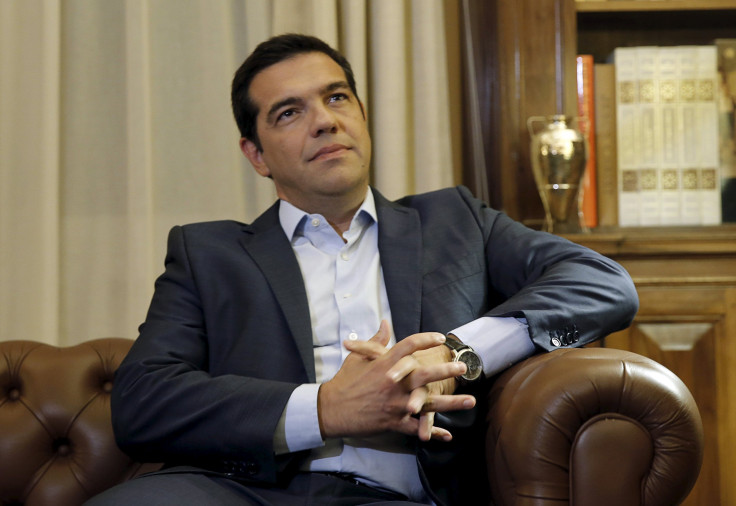Greek PM Tsipras resigns, calls for snap election; Syriza’s left-winger might form a party

Amid the Greece financial crisis, Prime Minister Alexis Tsipras has stepped down from his position and has called for elections at the earliest, leaving his future in the hands of the Greek people.
On Thursday, Tsipras submitted his resignation to President Prokopis Pavlopoulos and discussed for an election date as early as possible.
In an address to the nation, Mr Tsipras said that he would shortly meet with the “president of the republic” and present his and his government’s resignation. "I want to submit to the Greek people everything I have done (since taking office in January) so that they can decide once more," he added.
Greek news agency ANA cited government sources saying the election would be supposedly held on September 20. For now, an interim prime minister will be appointed to serve the office.
The news of the resignations comes after Mr Tsipras, who has been the prime minister since January, faced rebellion in his Syriza party over austerity measures needed for a major international bailout worth 89 billion euros [AU$129 billion] over the next years.
Last week, nearly one third of Syriza party MPs refused to back the program in parliament, ruling out his possibility of coming back to power. With the fallout of the members of his own party, Mr Tsipras decided to call snap polls and in a bid to come with a stronger hand in office without anti-bailout rebels in Syriza to slow him down.
He said that he is leaving his future to Greeks, who shall now judge him based on his performance. It is believed that although Mr Tsipras was successful in securing the bailout deal, the support of the opposition had played a crucial role.
He believes that everyone should have a fair chance to decide and say what they think of the deal. However, it is too early to comment on people’s response and chances of new elections.
Meanwhile based on polls, Mr Tsipras and his party still remain the most popular party in the country.
Eurogroup President Jeroen Dijsselbloem said that Greece should stick to the decisions of the bailout deal. European Commission President Jean-Claude Juncker said elections would increase support for the bail out.
Tsipras urged the Greeks to judge him on whether he adequately represented them in a battle with foreign lenders. "I feel the deep ethical and political responsibility to put to your judgment all I have done, successes and failures," he said.
"Swift elections in Greece can be a way to broaden support for ESM stability support program just signed by prime minister Tsipras on behalf of Greece," Martin Selmayr, chief of staff to commission head Jean-Claude Juncker, tweeted in reference to the EU bailout fund.
Also on Thursday, European Central Bank confirmed that the Greek government has repaid its 3.4 billion euros [AU$5.1 billion] debt.
Meanwhile, it is suspected that Syriza’s left-wingers might be on planning to split into their own parliamentary grouping, reported the Guardian . With almost 40 MPs belonging to the left-wingers, this split could result in making of the third largest party behind Syriza and New Democracy and most importantly they are in a position to achieve to get the mandate to form a government prior to the general elections.
Contact the writer at feedback@ibtimes.com.au, or let us know what you think below.





















